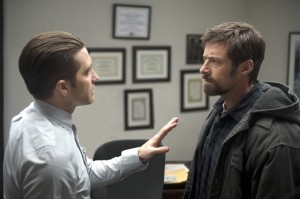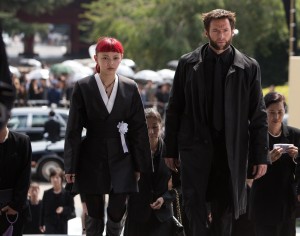Chappie
Posted on March 5, 2015 at 5:59 pm
B| Lowest Recommended Age: | Mature High Schooler |
| MPAA Rating: | Rated R for violence, language and brief nudity |
| Profanity: | Constant very strong language |
| Alcohol/ Drugs: | Drinking, drugs |
| Violence/ Scariness: | Intense and graphic violence, characters injured and killed |
| Diversity Issues: | Diverse characters |
| Date Released to Theaters: | March 6, 2015 |
| Date Released to DVD: | June 15, 2015 |
| Amazon.com ASIN: | B00UC9SOKW |

So, basically, no one here saw “Terminator.” Or “Frankenstein.” But maybe they did see “Robocop?” Or “Short Circuit?”
Writer/director Neill Blomkamp likes sci-fi allegories of social and political conflicts, as we saw in “District 9” and “Elysium.” Here he imagines that a couple of years from now South Africa will replace most of its front-line police force with robots from a government contractor. Efficient and just about unstoppable, they bring the crime rate down substantially. They are trusted by the law-abiding population and feared by the criminals. The CEO of the contractor is Michelle Bradley (Sigourney Weaver), who has turned down requests from two of her staff. Deon Wilson (Dev Patel) wants to develop artificial intelligence to see if he can create a form of mechanical consciousness. Counter to his Athenian dreams of a holistic robot spirit that can create poetry and assess the merits of works of art, there is the Spartan, Vincent Moore (Hugh Jackman), whose pet project is a super-powerful weapon called Moose that is all brawn and no brain. It operates entirely under human control, through a helmet that reads its operator’s thoughts. One dreams of heart and brains, one believes in brawn and firepower.
Michelle reminds them that she is CEO of a publicly traded weapons corporation. Her job is to provide powerful but obedient robot foot soldiers to the police force, not to explore existential questions or create military-force destructive capacity.
In brief opening scene set a year before the events of the film, a journalist explains, “Historically, when we look at evolution, it’s not surprising that Chappie’s left turn happened.” So we know from the beginning that Chappie will be a major turning point in human history. Then we go back to see how he is created, as Deon takes a discarded robot with an unreplaceable fused battery that has just five days before it will run down and brings the not-so-failsafe guard key card from the office to his apartment (where of course he has created a cute little wall-eyed home robot with decorative red glasses). He revs up on Redbull and slams down some bangin’ code to, you know, play God.
Just to make it clear, he introduces himself to the robot, who will be dubbed Chappie, as his maker. And just to show you how human sentient consciousness, at least as conceived by human screenwriters, will inevitably be, Chappie’s relationship to his creator is more conflicted than his relationship to the couple he sees as his mommy and daddy. These underground, off the grid, self-styled gangsta characters share the names of the performers who play the roles, Ninja and Yo-Landi (rappers from Die Antwoord) and “America” (Jose Pablo Cantillo), who live in an abandoned building covered with graffiti.
Chappie is caught in a tug of war between the idealistic Deon, who sees him as having infinite possibilities beyond the capacities of humans, and the gangstas, who see him as the key to bigger and better ways to create mayhem and steal cars and money. Deon makes him promise never to commit a crime. But Ninja covers him in bling and promises him a new body before the battery dies.
Blomkamp’s ambition is admirable and the broad scope of his imagination is impressive. The action scenes are vividly staged and the special effects are superb. It is Chappie’s movement that makes him seem human as much as his curiosity and spirit. seeing him gently stroke a dog’s back is so endearing we barely stop to consider whether his “hands” have the sensory capacity to “feel” the softness of the fur or the warmth underneath. When a human character transitions to robot form, the fact that his voice transitions as well makes no sense as a matter of mechanics, but this is more allegory than science. Unfortunately, the fact that the robot is more human than the humans is, to put it in computing terms, a bug, not a feature.
Parents should know that this film has constant very strong language and intense and graphic violence with some disturbing images and many characters injured and killed, as well as drinking, drugs, and brief nudity.
Family discussion: If you had the chance to upload your consciousness to a robot, would you do it? Could robot police ever work? How did Chappie’s innocence affect the people around him?
If you like this, try: “District 9” and “Elysium,” from the same director


